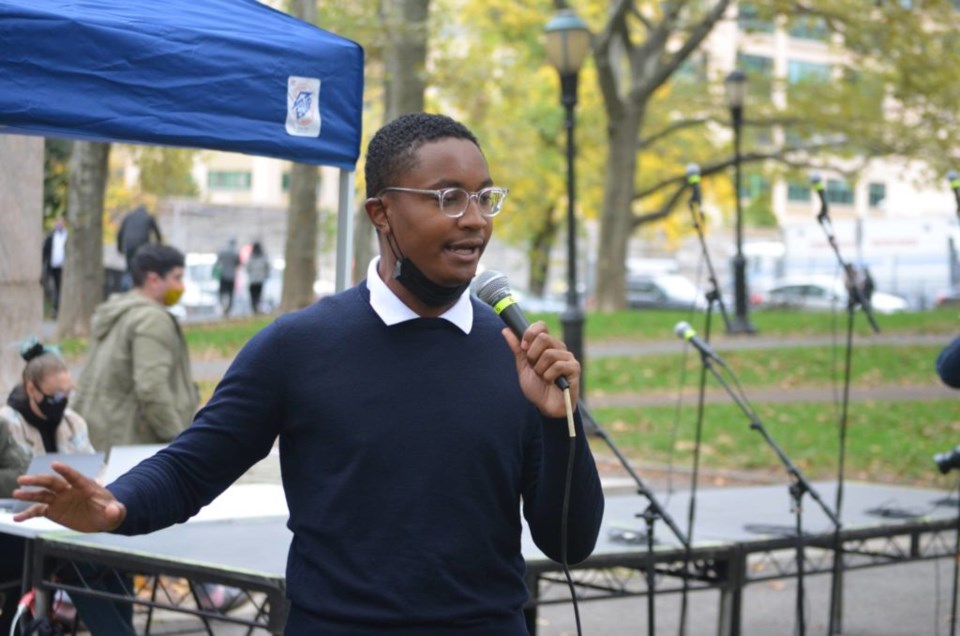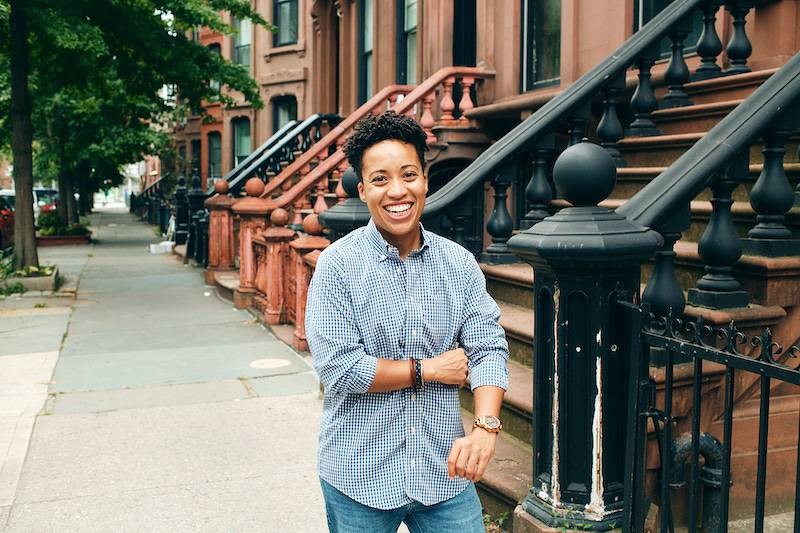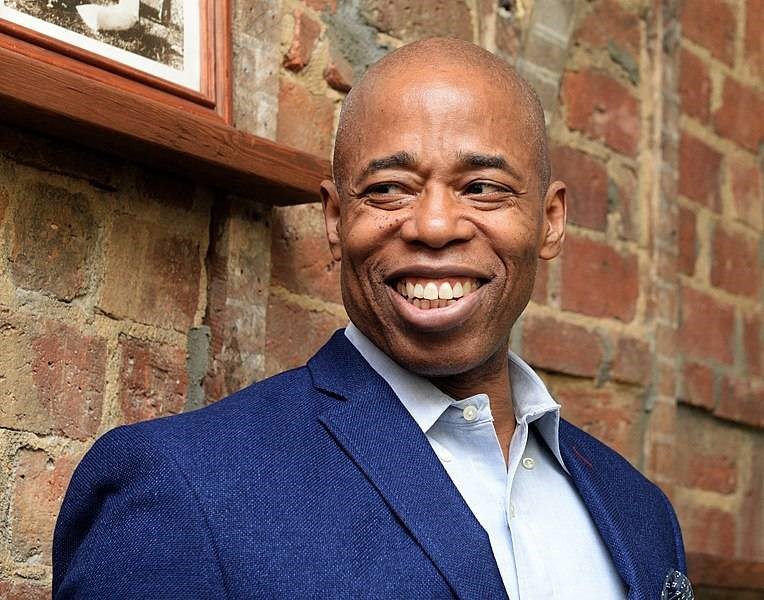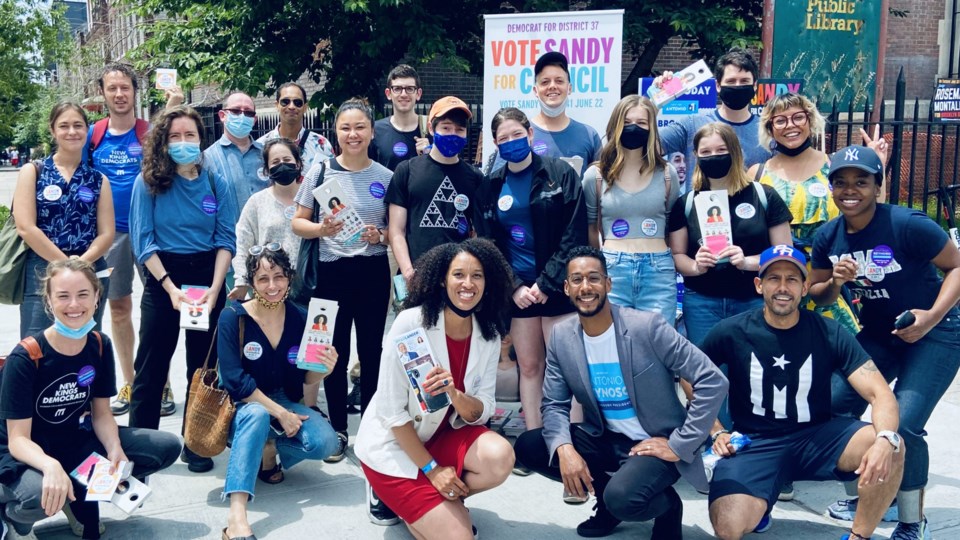The New York City Board of Elections certified the 2021 primary election results on Tuesday -- and Brooklyn progressives liked what they saw.
Although two moderate Democrats finished at the top of the mayoral race, progressives are proud of their down-ballot successes and are upbeat about their future.
"Brooklyn voters really saw candidates that they resonated with," Elana Leopold, NYC political director of the Working Families Party (WFP), told BK Reader.
WFP won in nearly all the City Council races in Brooklyn in which they endorsed a candidate.
"Brooklyn voters rejected Wall Street and real estate funded candidates and voted for leaders who are committed to building a more equitable society," Leopold continued.
Brooklyn progressives were quick to point out that it wasn't just City Council races where they notched victories.
Their candidates also won citywide races (comptroller and public advocate) and the Brooklyn borough presidency with City Councilmember Antonio Reynoso.
"I think our success is a testament to the organizing power of the progressive left in Brooklyn," Mariana Alexander, president of New Kings Democrats (NKD), told BK Reader.
The left-leaning political club endorsed six City Council candidates, winning four of those races.
Progressivism on the rise in gentrified central Brooklyn
Chi Ossé, endorsed by WFP, won by a 14% margin in Council District 36, which includes Crown Heights and Bed-Stuy. The first-time candidate entered politics from the activist community. At 23, the Crown Heights native is poised to be the youngest City Council member.

The progressive movement has caused tension across the city between longtime Black leaders and the new wave of younger Black progressives and their white activist allies. The New York Times reported about protests and counter-protests between the two camps.
"In our race, we had a candidate who ran for multiple seats in the past. There was this belief he had that this seat was guaranteed to him," Ossé told BK Reader. "But the seat isn't guaranteed to anybody -- it's guaranteed to the people."
Ossé said his team knocked on more than 30,000 doors, made thousands of calls and sent scores of text messages to win the primary. They also helped folks in the district with things like setting up COVID-19 vaccine appointments and distribution services in NYCHA developments.
"Not only were we campaigning, but we were also doing the work," he said.
In nearby Council District 35, which includes Fort Greene, Clinton Hill and parts of Bed-Stuy, Crystal Hudson, an NKD-backed candidate, faced a different challenge.
She won by 8% over Democratic Socialists of America (DSA)-endorsed Michael Hollingsworth. The district appears to have become a progressive stronghold.
The DSA publication, Jacobin, said Hollingsworth was a "formidable candidate" who ran against a "capable" opponent in Hudson. It noted that last year, voters in the district sent other DSA candidates to Albany: Sen. Jabari Brisport and Assemblymember Phara Souffrant Forrest.
"It's definitely a very progressive district. I think anyone who is perhaps a little bit more moderate, may not see quite as much success as somebody who identifies as a progressive," Hudson told BK Reader. "But, you know, that being said, this district is also very diverse."
Hudson dismissed the idea that the influx of white liberals into the community is the sole reason for its political transformation.
"I think that implies that only white people are progressive. And, you know, Black people are certainly progressive," she stated. "People of color are progressive, immigrants are progressive. All of the things we're talking about and fighting for, are things that resonate with everybody."

Co-opting the progressive movement
Not long after securing the Democratic Party nomination for mayor, Brooklyn Borough President Eric Adams and Gov. Andrew Cuomo held a press conference at Lenox Road Baptist Church in Flatbush about gun violence.
"I believe Eric and I come from the same political philosophy. We are progressive Democrats and we have the same definition of what it means to be a progressive Democrat," Cuomo declared.
Adams described himself as "the original progressive."

Scott Hofer, assistant professor of political Science at St. Francis College, wasn't surprised.
He told BK Reader that it was not unusual for major parties to co-opt messages from popular movements. More than a century ago, the Democratic Party absorbed the ideas of the Progressive Party, he pointed out.
"I think history might repeat itself here," he said, adding that "Adams and Cuomo, both moderates, are adopting specific pieces of the progressive movement."
Most voters may not notice subtle policy shifts to the left. Mainly Democratic Party and WFP activists see a significant distinction between the two parties, said Immanuel Ness, Brooklyn College political science department chair.
History suggests that a Democratic Party rebranding threatens the movement. However, its strength is its ability to push Democrats to the left.
"Since the WFP relies on the Democratic Party, progressive voters, many in unions, vote for the Democratic Party candidate on the WFP line, which gives the WFP greater political clout in advancing their progressive agenda to increase public spending for essential services that also help their unions," Ness said.
He continued: "Often unions will encourage their members to vote on the WFP line to sway Democratic public officials who are elected with Democratic pluralities, to support their political agenda."
Can they make it to the next level?
For all the satisfaction with down-ballot, boroughwide and citywide victories, a win in the marquee primary competition -- the NYC mayoral race -- eluded progressives.
"Neither party (WFP nor the DSA) played an active role in the race for Democratic standard bearer for mayor," Ness noted.
The socialists declined to endorse a candidate, and the WFP settled on Maya Wiley, its third choice, after Scott Stinger faced sexual misconduct allegations and the campaign of their second choice, Dianne Morales, imploded.
Ultimately, progressive parties must reach a point in their growth where they can field their own candidates who are also acceptable to Democrats, Hofer stated.
He explained that New York's fusion voting allows minor parties to cross-endorse major-party candidates. That allows them to appear simultaneously on the Democrat and WFP lines in an election.
WFP is currently battling election officials to reinstate candidates who BOE kicked off the party's line for the general election over a problem with the party's petitions.
"Our party fully complied with election law, as was confirmed by the State Supreme Court," Sharon Cromwell, WFP's New York deputy director, said in a statement.
Many progressives remain undaunted.
NDK didn't endorse a mayoral candidate partly because the organization focuses on races that lack wide visibility, Jessica Thurston, NKD's vice president of political affairs, told BK Reader.
The lack of a clear, unifying progressive candidate for mayor has ignited a conversation among left-leaning grassroots organizers about "building up potential long term mayoral candidates and not doing that by way of a machine politics system," Thurston added.
There's a consensus among progressives that it's just a matter of time before strong candidates emerge from their ranks who can run a successful mayoral campaign that's independent of the Democratic Party.




